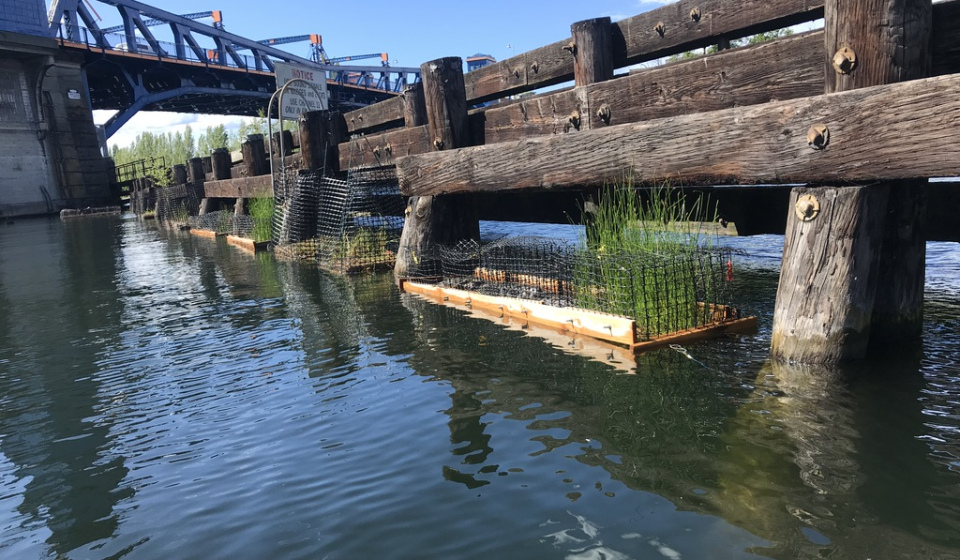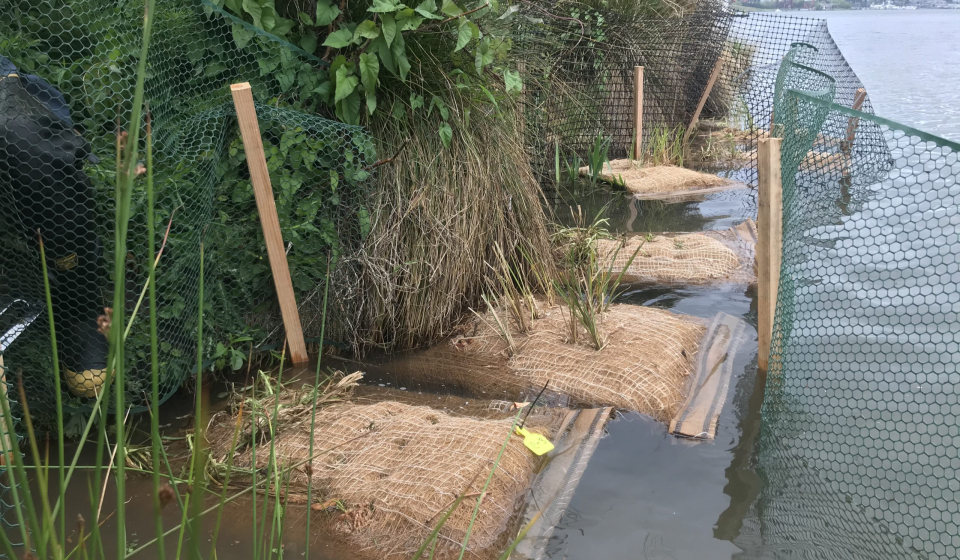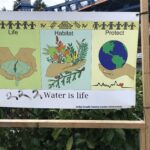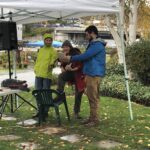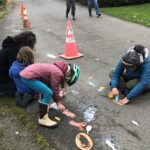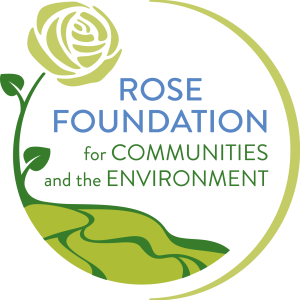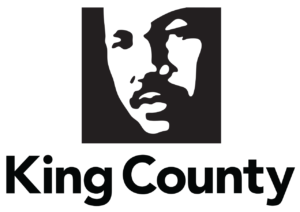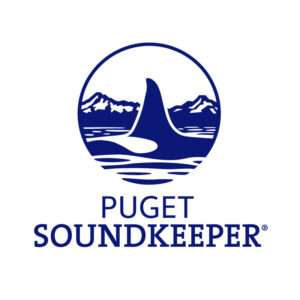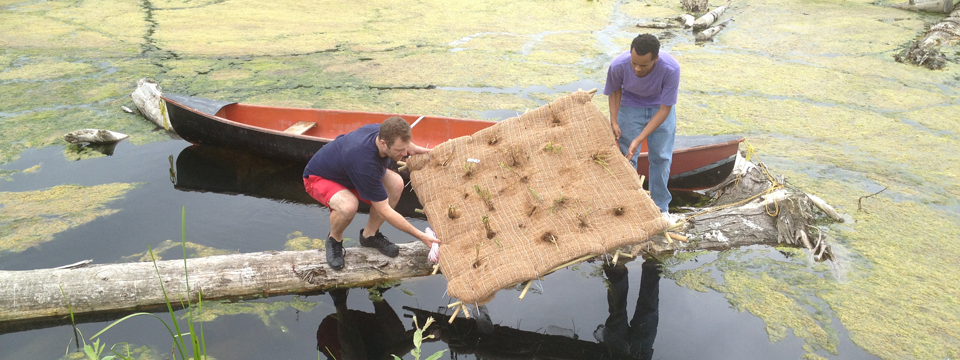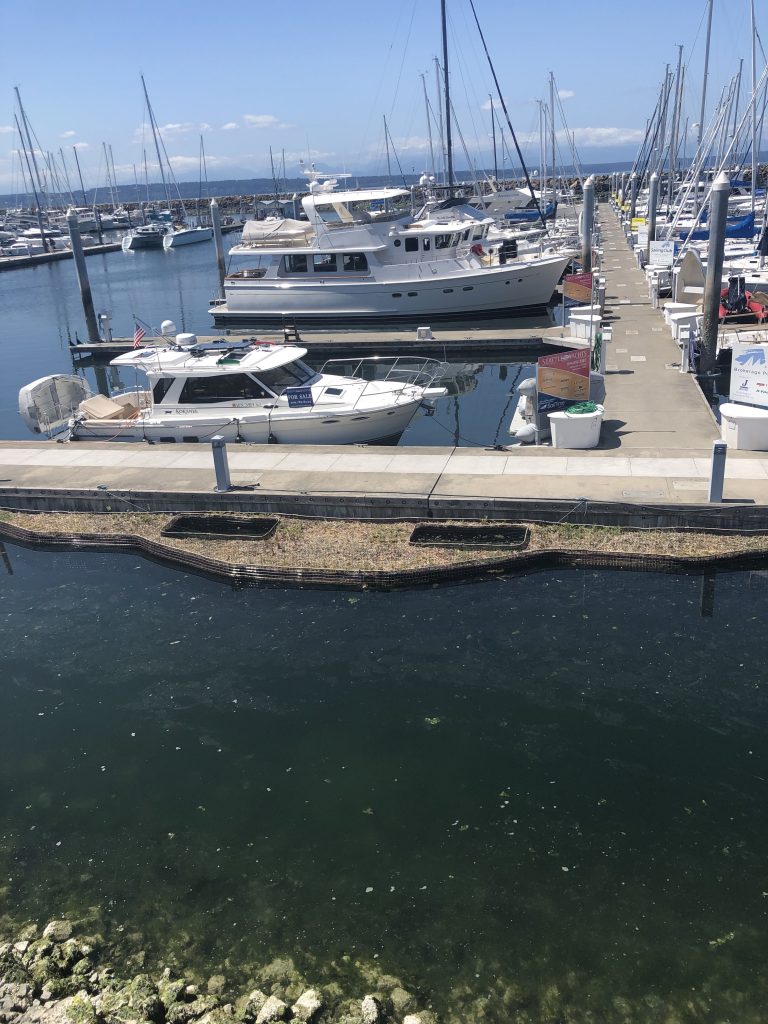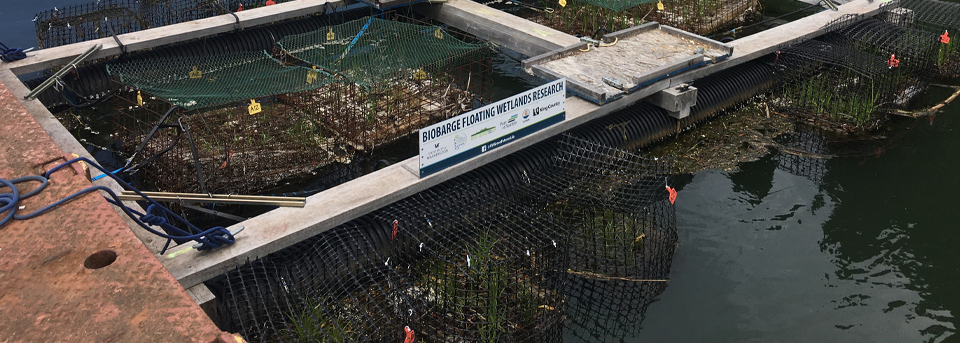December 19, 2022
Sweetgrass Living Shorelines Project
Project Background
The Sweetgrass Living Shorelines project examined the benefit of constructed floating wetlands to provide missing habitat on urbanized shorelines for outmigrating juvenile salmon in the freshwater Lake Washington Basin. This project built on the lessons learned from the Duwamish Floating Wetlands, testing new living shoreline prototypes.
The GFL convened an expert Urban Shores Working Group to advise on implementation and participate in a design charrette to envision floating wetlands at a range of sites in the lower watershed. The GFL team then selected two sites in Lake Union, at the Fremont Bridge and at South Lake Union Park. Floating wetland designs were constructed in collaboration with EarthCorps, installed behind the protection piers of the Fremont Bridge and monitored for plant health, fish use, and water quality. We fabricated alternative biodegradable living shoreline prototypes meant to root into the lake bed and installed them along the South Lake Union shoreline, monitoring them for plant reaction to fluctuating lake levels. All units were designed, built and deployed during 2021, and after the first summer of research were adapted and studied again during the summer of 2022. With support from the Rose Foundation and Puget Sound Keeper, we were able to offer an allied educational program to local indigenous youth.
The units were removed after the summer of 2022 with the conclusion of the project. They were relocated to the ponds at the Daybreak Star Cultural Center.
Sweetgrass Arts
The Sweetgrass Arts project, supported by a Seattle Department of Neighborhoods grant to an allied group, enabled a community arts event that featured local and Indigenous artists who contributed poetry and graphics for banners and interpretive signage at the Fremont Bridge, and invited people to paint salmon swimming along the adjacent Burke-Gilman Trail.
Reports and Findings
For more information on the design process and plant growth, see an article in Restoration Ecology. The GFL team developed full reports for both 2019 and 2020 research years, with results also informing as School of Marine Affairs Capstone Report. For more information on the community science program, an article has been published in the journal Socio-Ecological Practice Research.
Partners + Funders
This project was funded by King County Waterworks and the Rose Foundation/Puget Soundkeepers. Many thanks to our Urban Shores Working Group, and for site partnerships with Seattle Department of Transportation, Washington DNR, Seattle Parks, Fremont Center, Fremont Arts Council and Puget Soundkeepers.
Current Team:
Nancy Rottle – Principal Investigator
Mason Bowles – Technical Lead
Tim Lehman – Project Coordinator
Jenn Engelke – Senior Field Researcher, Design Lead
Meaghan O’Connor Lenth – Project Support
Related Projects
